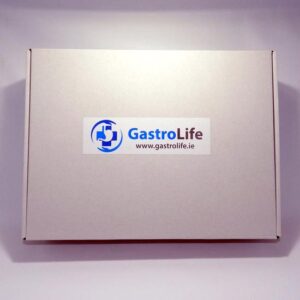 SIBO or Small Intestinal Bacterial Overgrowth is a common underlying cause of Irritable Bowel Syndrome (IBS). SIBO has been shown to be present in up to 78% of IBS cases and should be investigated as part of the root cause. Under normal conditions, most of our bacteria are far down the digestive tract, in the large intestine. The small intestine should have much lower numbers of bacteria. However, in SIBO, bacteria from the large intestine may have travelled up into the small intestine and caused an overgrowth.
SIBO or Small Intestinal Bacterial Overgrowth is a common underlying cause of Irritable Bowel Syndrome (IBS). SIBO has been shown to be present in up to 78% of IBS cases and should be investigated as part of the root cause. Under normal conditions, most of our bacteria are far down the digestive tract, in the large intestine. The small intestine should have much lower numbers of bacteria. However, in SIBO, bacteria from the large intestine may have travelled up into the small intestine and caused an overgrowth.
Under normal circumstances, our body will digest the food we eat first, breaking down carbohydrates and sugars before it reaches bacteria lower in our digestive tract. When this bacteria is present further up where it is not meant to be, it may ferment food that has not been broken down yet. This can cause build up of gas and the overgrowth can lead to the symptoms of IBS.
This test works by measuring the gas production by bacteria in your gut. Prior to the test, a strict diet for 1-2 days will help to ‘starve’ these bacteria so that gas production at baseline is extremely low. At the beginning of the test, a baseline breath sample is taken to measure this. A sweet liquid (lactulose) is then taken which goes down into your digestive tract. Once bacteria come into contact with this liquid, they will ferment the sugar and produce gas. This goes into your bloodstream and out in your breath. As the solution travels down, gas is produced when there is bacteria present. If you produce gas early on in the test procedure, this means that the bacteria is high up in the digestive tract – in the small intestine. If you do not produce any gas until very late in the test, this can be simply due to normal bacteria much lower down in the digestive tract. Therefore by measuring the output of gas over time, we can determine where the bacteria is located.
The test also measures two types of gas – hydrogen and methane. This can help to identify different types of bacteria in the gut. This is important so that we can tailor your protocol effectively. Methane-producing bacteria are more often associated with constipation where hydrogen-producing bacteria are usually associated with loose stools or diarrhea. Of course there are many exceptions to this rule! Methane-producing bacteria can also cause problems even when they are not in the small intestine. Your nutritionist will discuss how the test results are relevant to you and your symptoms.
Who should take this test?
Anyone with any of the following symptoms should take this test*:
- Digestive issues from reflux, irritated stomach or bowel, distension or bloating, feelings of extreme fullness after eating, cramps, diarrhoea or constipation, fatty or floating stools
- Reactions to foods which may be difficult to pin-point
- Related issues such as anxiety, acne rosacea, unexplained joint or muscle pain
- Unexplained fatigue, brain fog
- Weight loss-resistance
If you have ongoing digestive issues and are interested in functional medicine testing: please contact us at clinic@positivenutrition.ie or make an enquiry online. We have a number of different tests available and it is most helpful, and cost effective, to carry out an initial assessment with your nutritionist before testing.

